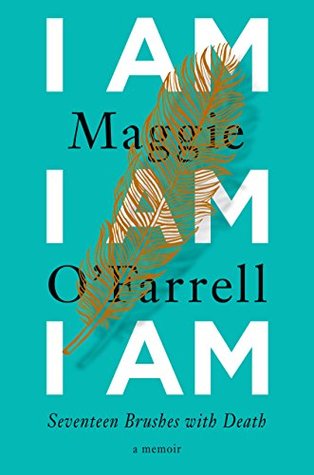More on this book
Community
Kindle Notes & Highlights
Read between
November 29 - December 3, 2023
If, as a child, you are struck or hit, you will never forget that sense of your own powerlessness and vulnerability, of how a situation can turn from benign to brutal in the blink of an eye, in the space of a breath. That sensibility will run in your veins, like an antibody. You learn fairly quickly to recognise the approach of these sudden acts against you: that particular pitch or vibration in the atmosphere. You develop antennae for violence and, in turn, you devise a repertoire of means to divert it.
There is nothing unique or special in a near-death experience. They are not rare; everyone, I would venture, has had them, at one time or another, perhaps without even realising it.
The people who teach us something retain a particularly vivid place in our memories. I’d been a parent for about ten minutes when I met the man, but he taught me, with a small gesture, one of the most important things about the job: kindness, intuition, touch, and that sometimes you don’t even need words.
There is, I find, great solace to be had from it. Karen Blixen wrote, in her Seven Gothic Tales, “I know a cure for everything: salt water…in one way or the other. Sweat, or tears, or the salt sea.”
The experiences you live through while gravely ill take on a near-mystical quality. Fever, pain, medicine, immobility: all these things give you both clarity and also distance, depending on which is riding in the ascendant.
We do what we have to do to survive; as a species, we are inventive in the face of adversity. Robert Frost said, “The best way out is always through,” and I believe this to be true but, at the same time, if you can’t go through, you can always go around.
Coming so close to death as a young child, only to resurface again into life, imbued in me for a long time a brand of recklessness, a cavalier or even crazed attitude to risk. It could, I can see, have gone the other way, and made me into a person hindered by fear, hobbled by caution.
It was not so much that I didn’t value my existence but more that I had an insatiable desire to push myself to embrace all that it could offer. Nearly losing my life at the age of eight made me sanguine—perhaps to a fault—about death. I knew it would happen, at some point, and the idea didn’t scare me; its proximity felt instead almost familiar. The knowledge that I was lucky to be alive, that it could so easily have been otherwise, skewed my thinking. I viewed my continuing life as an extra, a bonus, a boon: I could do with it what I wanted. And not only had I tricked death but I had escaped
...more
I could not have asked for more from life, to have been spared what might have been. I could have died there in that hospital but I didn’t. I could have been condemned to a life of immobility but I wasn’t. I dodged a bullet—many, in fact.
In any fairy-tale, getting what you wish for comes at a cost. There is always a codicil, an addendum to the granting of a wish. There is always a price to pay. How was I to know, as I held her that night, as I stared at the ultrasound screen, as I burst out of the clinic, fumbling with my phone, trying to press the right buttons so I could call my husband, the boy from the courtyard, and say, you’ll never guess what I’ve just seen? How I’ve longed that it could have been me, the wisher, who had to pay the magic’s price, to bear the brunt. I would give anything to take the curse from her, to
...more
I had no idea how to live, how to be, how to bear witness to this level of agony in a child so young, how best to alleviate her pain.
You yourself know that a near-death experience changes you forever: you come back from the brink altered, wiser, sadder.


